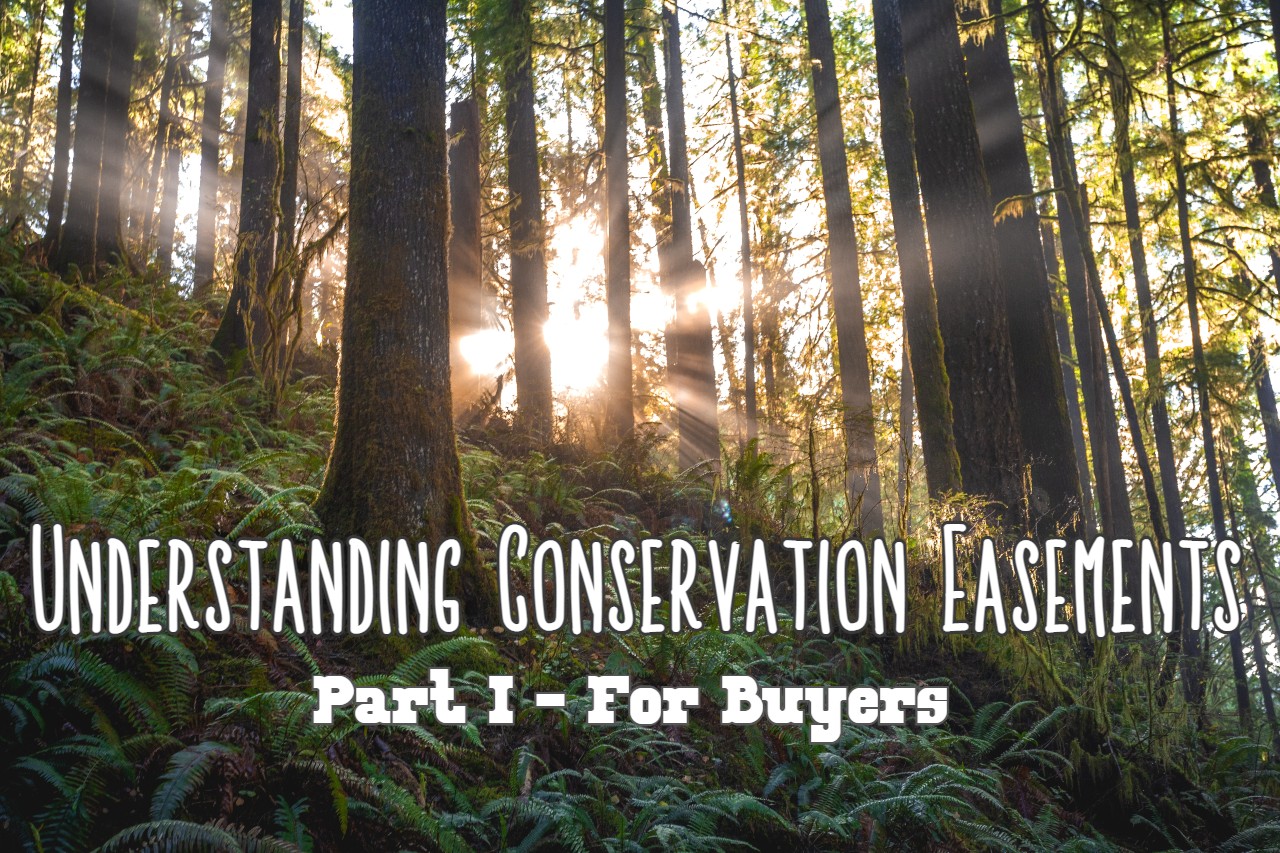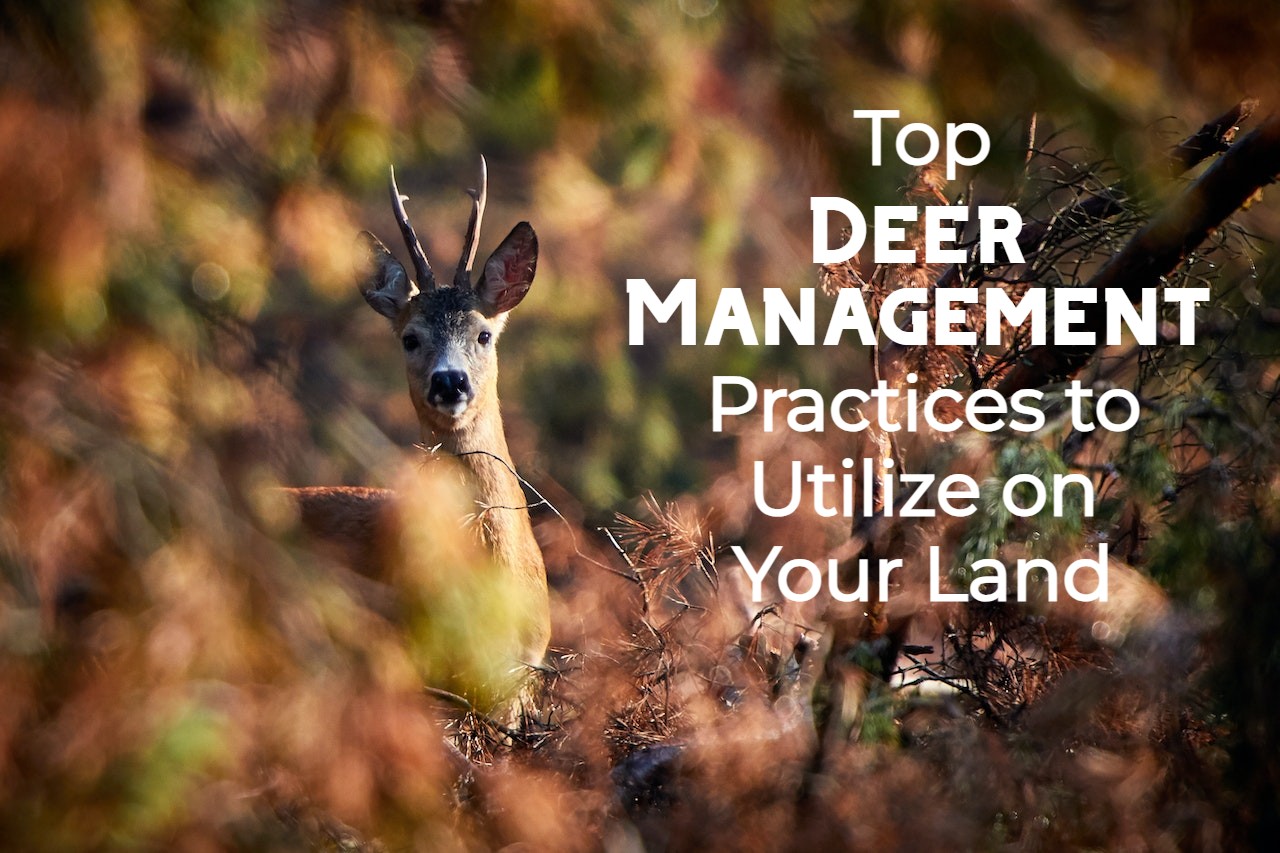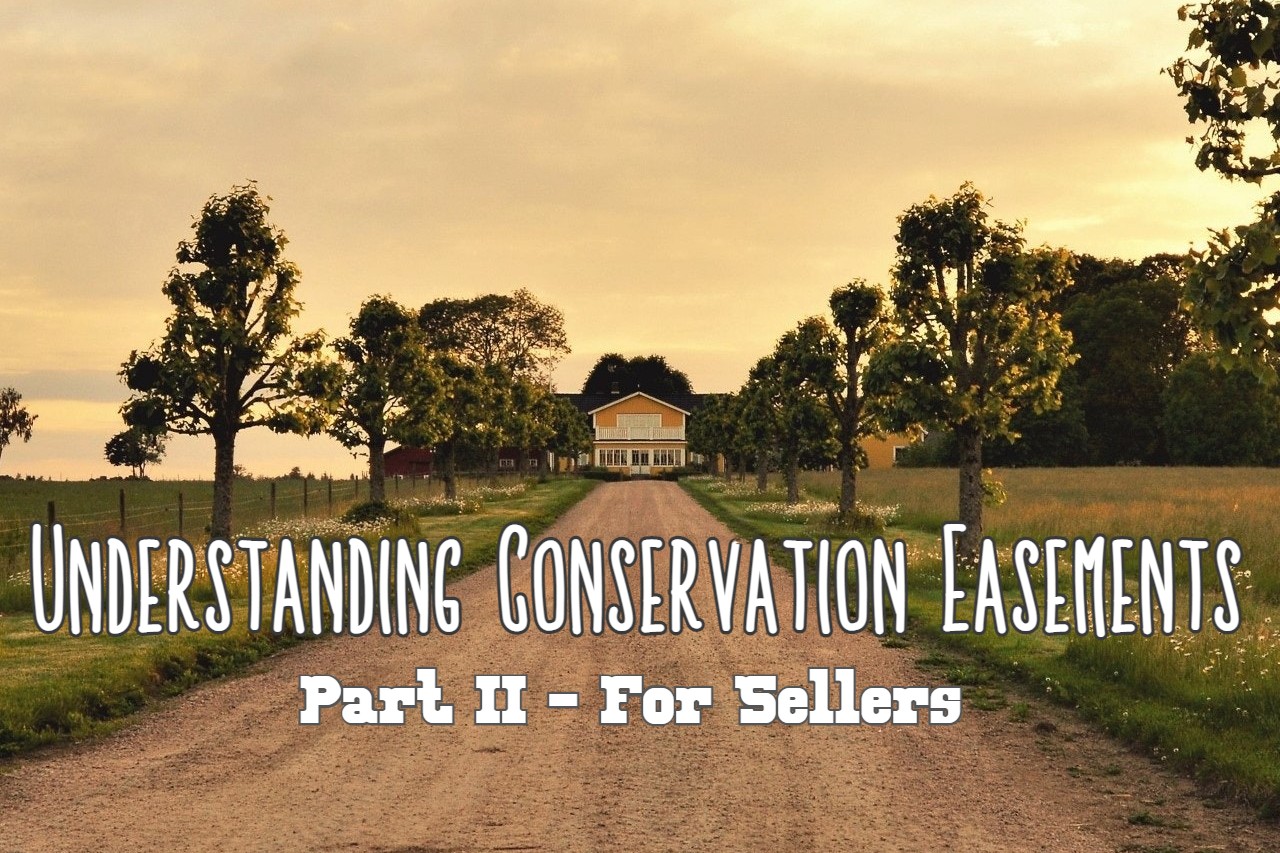Understanding Conservation Easements Part I – For Buyers
Originally posted on Michigan-LandForSale.com – reprinted with permission.
So you’ve been looking for that perfect piece of property – for hunting, enjoying being in nature, or some other recreational use. In your searching, you may have come across properties that have “conservation easements”. If you’re not sure what that means, and how it would affect you if you purchase a property with a conservation easement, wonder no more!
Here is a basic guide to conservation easements in Michigan for land buyers.
The State of Michigan defines a conservation easement as:
A conservation easement is a voluntary, legally recorded agreement between a landowner and the State of Michigan that restricts land to agricultural and open space uses. The easement prohibits or limits any subdivision, development, or any activity that would diminish the property’s agricultural or open space value.
In other words, a conservation easement is a document that was voluntarily set up by an owner at some point in the past that permanently limits the use of the land to protect its conservation value.
If the current owner or a subsequent generation chooses to sell land, it’s important for prospective buyers to understand that all easement restrictions remain in place and will continue to be monitored and enforced by the conservancy. The original agreement is perpetual and binding to all future owners.
Of course, there are pros and cons to buying a property with a Conservation Easement.
The biggest pro for land buyers is that you can usually purchase a property that has a conservation easement for lower-than-market-value. Naturally, on the flip side this may be a con if you choose to sell in the future, as your resale value may also be lower. Other pros include financial incentives, such as being exempt from the “pop-up” tax that can be levied at the sale of a property when the value of the property has increased but property taxes have not previously been raised to reflect the increased value. And if you intend to pass the land along to your children, land with a conservation easement is eligible for an exclusion from estate tax of up to $500,000.
The biggest con is that your use of the property is limited – sometimes very strictly limited. However, as long as your desired use is allowed, this may be a non-issue for you.
Every conservation easement is a little different, as they are created by the owner based on their own personal interests. But when considering land that has a conservation easement, here are a few key things to look at:
- Check the Title: Conservation easements are recorded in the title policy, so this will give you an understanding of the history of the property’s ownership and use.
- Read the Conservation Easement: review the document to make sure you understand what uses are allowed and what are prohibited on the property. You’ll also want to understand the ecological and/or agricultural value of the land, and make sure to check for any pre-existing violations of the easement so you can clear them up before finalizing the purchase. Think ahead, too – there may be things you’re not going to do with the property now, but may want to do in the future.
- Identify the Easement Holder: every conservation easement will be monitored by the holder of the easement, so make sure you know who you will be dealing with, and their mission and procedures. Don’t hesitate to give the conservancy a call to introduce yourself as a potential buyer and ask them first hand about the restrictions on the property, their monitoring procedures, or any other questions you may have.
- Read the Baseline Documentation Report: this report covers the condition that the property was in when the easement was originally put in place. This allows you to check for consistency in monitoring before your purchase, and tells you what the conservancy will be checking in the future. The seller and the land conservancy should have a copy of this document to share with you.
- Find a Knowledgeable Lender: your Realtor® should be able to help you find a lender that is more familiar with conservation easements, and this will make the mortgage and closing processes go more smoothly for you.
Michigan Lifestyle Properties is a premier organization that specializes in this type of land transaction. If you’re interested in learning more about conservation easements from an expert in land conservation with over 15 years’ experience, contact our agent Emily Wilke, who has assisted in the conservation of over 7,000 acres across southwest Michigan. She is one of many agents with Michigan Lifestyle Properties that offers an expertise in conservation, biology & environmental studies, conveyances, land contracts and natural resources.










